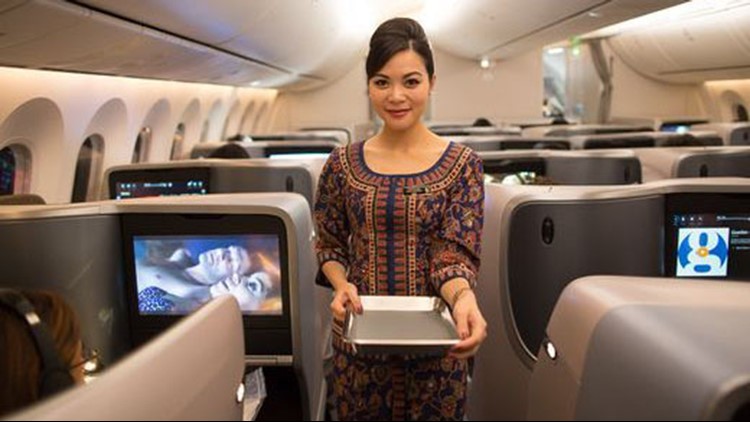The Food and Drink Items that Airline Employees Avoid on Planes”
Air travel has become an essential part of our lives, allowing us to explore new destinations and connect with loved ones across the globe. While airlines strive to offer a wide range of food and drink options to enhance the in-flight experience, there are certain items that airline employees, who spend a significant amount of time on planes, tend to avoid. From taste and quality concerns to practical considerations, let’s delve into the food and drink items that airline employees steer clear of while working in the skies.
“Meals with Strong Odors”:
One crucial factor that airline employees consider when choosing their in-flight meals is the impact on cabin air quality. Foods with strong odors, such as pungent cheeses, heavily spiced dishes, or fish-based meals, can release aromas that linger in the confined cabin space. These odors may not only be unpleasant for passengers but also for the crew members working in close proximity.
“Beverages with Diuretic Effects”:
Airplane cabins are known for their low humidity, which can lead to dehydration during flights. To counteract this, airline staff often prioritize hydration by consuming water and other non-diuretic beverages. Diuretic drinks like coffee, tea, and alcoholic beverages may increase the need for frequent restroom visits, which can be inconvenient for flight attendants busy attending to passengers’ needs.
“Complicated or Messy Foods”:
When it comes to in-flight meals, airline employees generally avoid foods that are complicated to eat or have a high potential for making a mess. Since flight attendants need to balance their duties while ensuring passenger safety and comfort, foods that require excessive handling, cutting, or risk of spills are not ideal choices. Instead, they opt for easy-to-eat meals that can be consumed quickly and neatly.
“Unfamiliar or Exotic Ingredients”:
In-flight catering often includes a variety of meals inspired by different cuisines. However, airline employees may avoid dishes with unfamiliar or exotic ingredients. This cautious approach is primarily driven by potential allergies or sensitivities to certain foods. By sticking to familiar options, airline staff can minimize the risk of adverse reactions that could affect their performance and well-being during flights.
“Pre-Packaged Snacks and Healthy Alternatives”:
Airline employees often rely on pre-packaged snacks or healthy alternatives when it comes to in-flight sustenance. These options provide convenience, ease of consumption, and nutritional value, allowing crew members to refuel quickly during their demanding work schedules. Items like granola bars, nuts, fresh fruits, or individually wrapped sandwiches are popular choices for airline staff.
While airlines aim to cater to diverse palates and dietary preferences, there are specific food and drink items that airline employees tend to avoid during flights. Whether it’s due to considerations of cabin air quality, practicality, potential messiness, or personal preferences, flight attendants and other airline staff prioritize meals that are easy to eat, hydrating, and compatible with their work responsibilities. By being mindful of these preferences, airlines can ensure that their employees can perform their duties effectively while maintaining their well-being in the air.



No Comments
Leave Comment